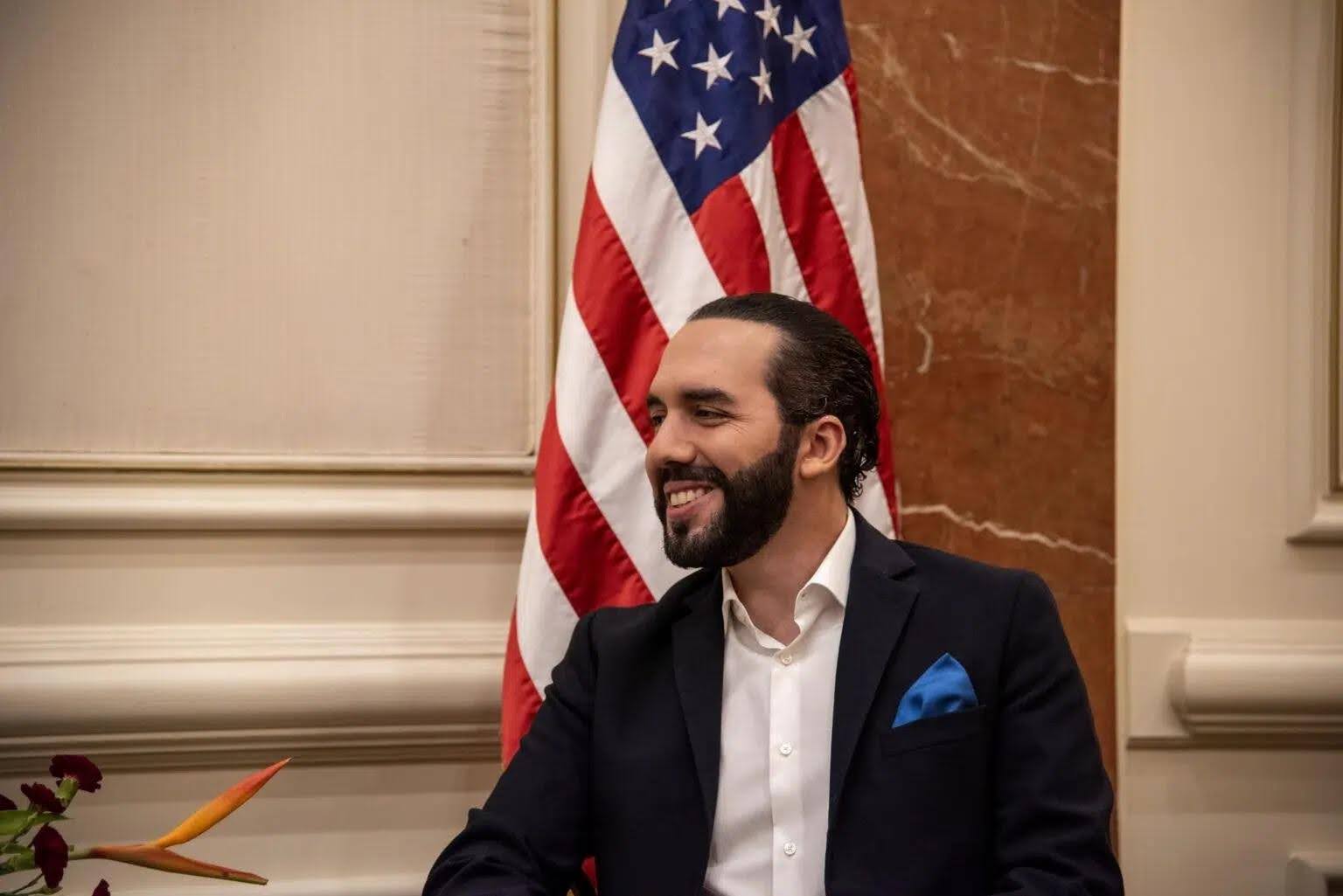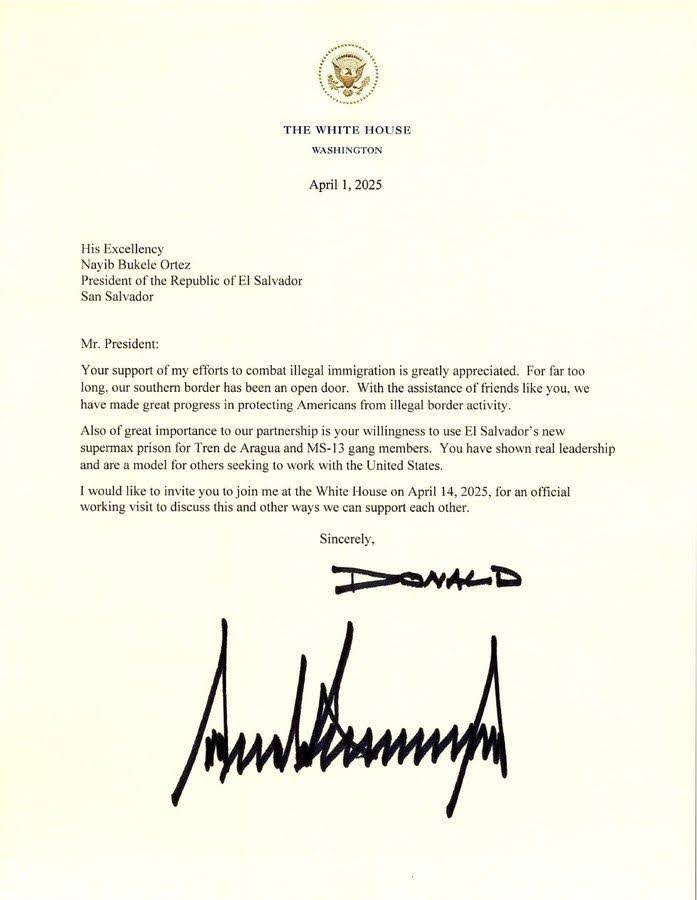Key Takeaways:
- With Bitcoin possibly on the agenda, U.S. President Donald Trump has invited Nayib Bukele, President of El Salvador, to the White House on April 14.
- El Salvador, the first nation to make Bitcoin legal currency, has more than 6,100 BTC; the U.S. has just set up a National Bitcoin Reserve.
- Talks could cover blockchain projects between the two countries, financial cooperation, and digital asset rules as well as others.
President Donald Trump has formally welcomed Nayib Bukel, president of El Salvador, to the White House on April 14. Although the main agenda has not been made public, rumors are increasing that Bitcoin will be a major subject.

Bukele’s Bitcoin Vision and Its Effects
When El Salvador became the first country to use Bitcoin as legal currency in 2021, it created history. Since then, Bukele’s administration has invested much in Bitcoin, buying more than 6,100 BTC and including the currency into its financial system. The action sought to draw international investment, encourage financial inclusion, and lower remittance expenses for Salvadorans working outside.
El Salvador has doubled on its Bitcoin plan despite doubts from world financial institutions. The nation issued Bitcoin-backed bonds, often known as “Volcano Bonds,” to generate money for infrastructure growth and created the “Bitcoin City” project, a tax-free economic center driven by geothermal energy. These projects have helped Bukele to make El Salvador a world leader in Bitcoin adoption.
Read More: El Salvador Buys 12 More Bitcoin for National Reserve Despite the IMF Deal


Trump’s National Bitcoin Reserve and Crypto Position
The Trump administration has expressed growing interest in digital assets and Bitcoin. The U.S. government said lately that a National Bitcoin Reserve would be created using confiscated cryptocurrency assets. This action shows a change toward acknowledging Bitcoin’s place in the financial system.
Trump has also spoken out against relying on conventional banking institutions and investigating alternate monetary strategies. His administration’s attitude toward digital assets might fit Bukele’s goal, hence opening possibilities for cooperation between the two countries.
Read More: World Liberty Financial of Trump to Introduce USD1 Stablecoin Backed by U.S. Treasuries
Possible Crypto Cooperation Areas
1. Digital Asset Rules
Regulatory clarity for Bitcoin and other cryptocurrencies is one of the main issues probably under discussion. While the U.S. is currently negotiating the intricacies of crypto legislation, El Salvador has established a legal system encouraging Bitcoin use. A conversation between the two leaders could shape future policies in both nations.
2. Cooperation in Finance
El Salvador’s active incorporation of Bitcoin into its economy could lead to talks on financial cooperation such:
- Helping El Salvador and the U.S. exchange Bitcoin-based payments.
- Creating bilateral treaties to promote Bitcoin investments.
- Examining ways for cross-border transactions using blockchain technology.
3. Blockchain Infrastructure and Innovation
Large-scale blockchain adoption might be modeled on Bukele’s ambitious projects like Volcano Bonds and Bitcoin City. El Salvador’s expertise can help the U.S. investigate comparable projects or assist the country’s crypto-related infrastructure initiatives.
Global Reactions and Challenges
El Salvador has struggled despite its strong position on Bitcoin, including price volatility and doubts from world financial agencies like the IMF and World Bank. These groups have expressed worry over the possible dangers of a Bitcoin-based economy, forecasting financial turmoil.
Bukele has rejected these charges, stressing Bitcoin’s long-term promise, nonetheless. His steady backing of cryptocurrency and favorable ratings indicate that El Salvador will keep going forward no matter what the rest of the world believes. Regulatory ambiguity has made the US government cautious about Bitcoin’s economic influence, yet indications of increasing acceptance from the National Bitcoin Reserve have led it to believe differently. Trump’s conversation with Bukele could provide hints on how the United States plans to handle the evolving cryptocurrency landscape.


















